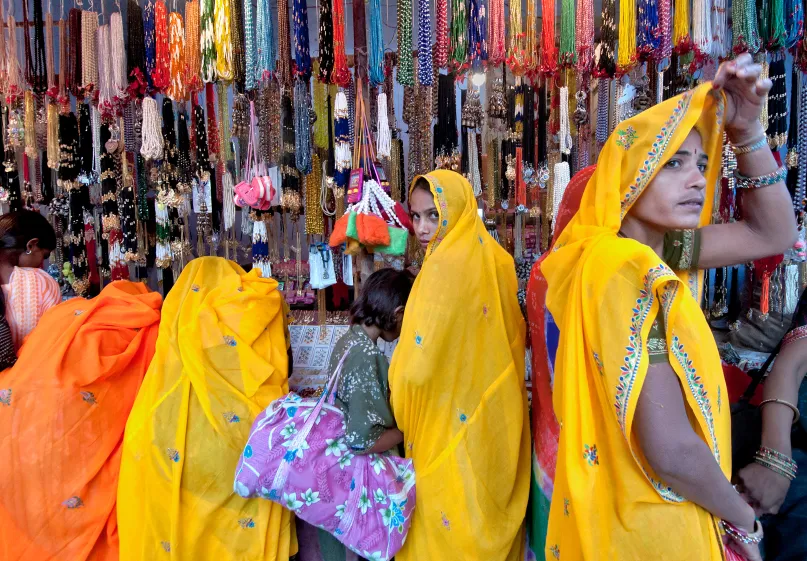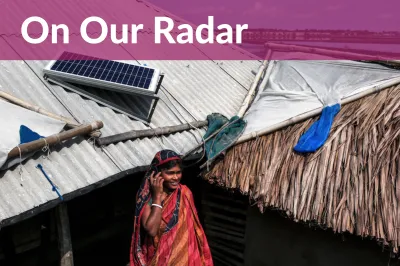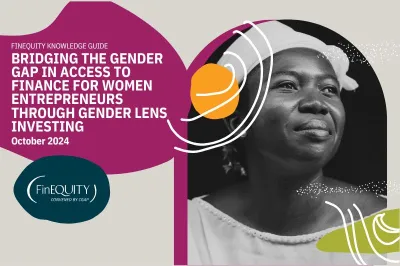A Collaborative Effort to Diagnose the Effect of Social Norms on Women's Financial Inclusion

Over the years, financial inclusion stakeholders have conducted several demand-side studies to collect data on the financial needs and preferences of women and women-led businesses. However, most of these studies focus on gathering data on women’s behaviors and use regulatory or supply-side constraints to explain these behaviors, without ever exploring the drivers of these behaviors, which are often rooted in social and cultural expectations that prescribe what a woman can and cannot do in the household, community, and economy. According to a 2017 brief from CGAP, gendered-social norms related to women’s asset ownership and inheritance, collective attitudes concerning women’s paid and unpaid work, mobility outside of the home, and gendered roles in the economy limit women’s ability to access, use, and benefit from financial services. These norms also shape the behavior of financial inclusion market actors such as Financial Service Providers (FSPs), policymakers, and supporting infrastructure providers leading to an inequitable financial market system that does not work for women.
Understanding how gendered- social norms shape women’s financial needs, capacities, and behaviors and translating these insights to develop solutions that either work around these norms or transform them is one of the key priorities of FinEquity’s Gender-Transformative Solutions learning theme. However, there are no standardized tools or approaches to diagnose social norms that are directly applicable to women’s financial inclusion and economic empowerment. In 2019, with support from the MetLife Foundation, CGAP worked with MarketShare Associates to develop an approach to diagnose gendered-social norms that shape women’s financial behaviors and opportunities. The diagnostic research focused on Syrian women entrepreneurs in South-Eastern Turkey and yielded some rich insights about what norms shape women’s access and use of financial services and how these insights can be used to develop financial products or interventions that either work around norms or work to transform them. The research methodology was documented as the “Gendered Social Norms in Financial Inclusion - Diagnostic Guidelines” and the draft social norms diagnostic guidelines will be replicated and tested in different locations as a part of quality assurance and reliability efforts, before making it available for wider use.
Testing, learning, and refining
as well as to identify opportunities to design gender-transformative solutions that advance women’s financial inclusion and economic empowerment. , which will allow them to learn from each other’s experience as well as solve any challenges with input from their peers. The Social Norms Diagnostic Co-lab activities will take place over the next nine months. Please see our Co-Lab partners below:
| Organization | Diagnostic Location |
| Bill and Melinda Gates Foundation (BMGF) | Bangladesh |
| United Nations Capital Development Fund (UNCDF) | India |
| Access to Finance Rwanda (AFR) | Rwanda |
| Financial Sector Deepening Zambia (FSDZ) | Zambia |
| Deutsche Gesellschaft für Internationale Zusammenarbeit GmbH (GIZ) | Tunisia |
| Joint Programme on Gender Transformative Approaches for Food Security and Nutrition (JP GTA) implemented by the Food and Agriculture Organization of the United Nations (FAO), the International Fund for Agricultural Development (IFAD) and the World Food Programme (WFP) | Malawi |
on women’s access and use of financial services and what can be done about it. In addition to testing and refining the diagnostic guidance, each Co-lab partner will use the findings from the diagnostic research to feed into their program development processes and design social norms-informed interventions that can advance women’s financial inclusion and livelihood opportunities by creating a more equitable financial market system.
Within the broader agenda of understanding what social norms are at play and their role in women’s financial inclusion, each of the Co-Lab partners will focus their research efforts on specific financial inclusion outcomes. Such outcomes will include an examination of how social norms influence the uptake of DFS by women in specific contexts (e.g., rural areas) or for specific livelihood goals (growing their business), the ability to expand the use of FS to improve lives as well as financial inclusion policies and regulations.
Contributing to industry learning
As each partner undertakes the social norms diagnostic research in a specific country over the next nine months, . This will allow all stakeholders to learn from each other and support collective problem-solving on any challenges in operationalizing the research. The key findings and lessons learned from this process will result in:
- An updated publicly available version of “Gendered Social Norms in Financial Inclusion - Diagnostic Guidelines” that draws on the learnings from the Co-lab partner experiences in each of the different research contexts. It will include detailed guidance on designing and implementing social norms diagnostic research with examples of research tools, practical tips, and suggestions for adaptation based on research objectives.
- Context-specific research findings on the relevant social norms and how they shape women’s financial inclusion. Each Co-lab partner will document and share these with relevant stakeholders nationally. The diagnostic research findings will also feed into each Co-lab partner’s strategy or intervention design on advancing women’s financial inclusion.
- A synthesis report drawing on findings from each of the different contexts to understand how social norms and their role in shaping women’s financial inclusion are similar or different across geographies and segments of women (categorized by socio-economic characteristics, life stages, livelihood sectors, etc.).



The USAID Passages Project has been examining social norms re. health and adolescents, especially reproductive health. They should be issuing a publication soon.
Your blog was very interesting. It made me think about the differences between social norms and organizing principles of society that are implemented partially through social norms. This is a fascinating subject.
Leave a comment